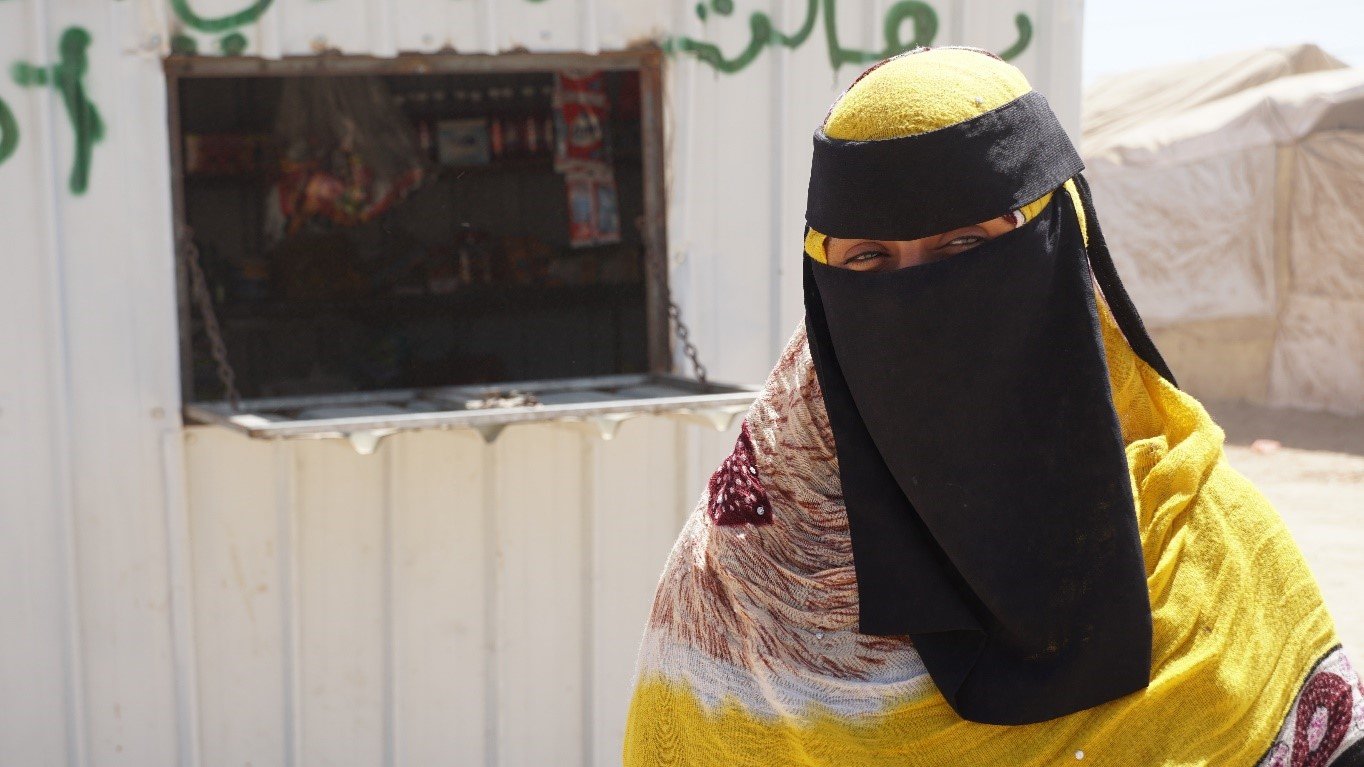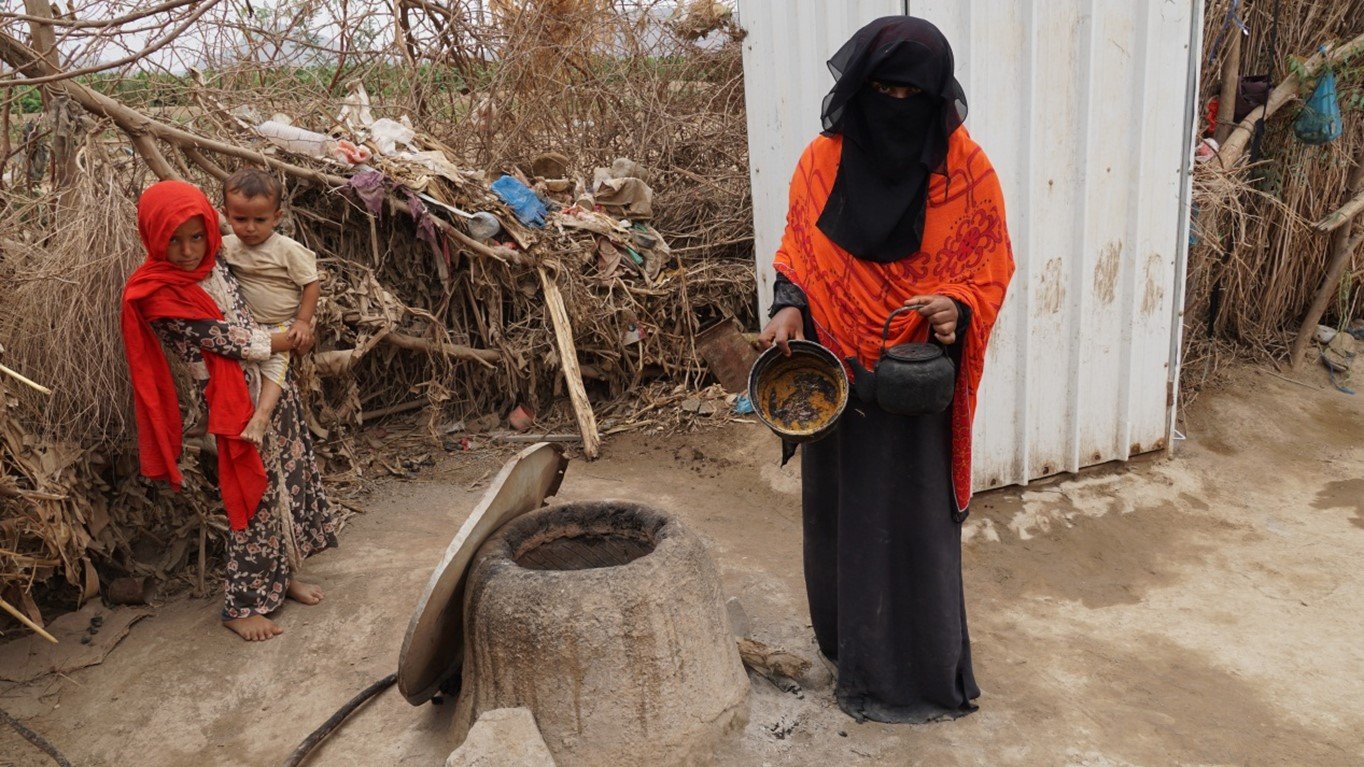Yemen remains the world’s largest humanitarian crisis. The fallout from years of civil war - such as a lack of functioning public services - creates new and spiralling crises every year.
- Since 2015, nearly 4.5 million Yemeni people - 14 percent of the population - have fled their homes
- An estimated 21.6 million people require humanitarian assistance and protection services.
CARE is one of the few international aid agencies with an established presence in Yemen, where we have worked since 1993. Through the Rapid Response Mechanism (RRM), led by the UN Population Fund (UNFPA), we provide urgent lifesaving assistance to vulnerable people forced to flee their homes.

Image: Bassam Saleh/CARE
In Yemen, CARE reaches people forced to flee their homes within 72 hours
Through RRM, CARE teams are on hand to assist newly internally displaced people (IDPS) in Abyan Governorate with immediate, critical lifesaving emergency packages. Within the first 24 to 72 hours of displacement, families receive relief packages that include ready-to-eat food, basic hygiene materials, and a female dignity kit. Our teams also assess and refer particularly vulnerable families for additional food and cash assistance.
Mohammed Saleh, a 27-year-old displaced father of three children, says,
When I arrived with my family at the camp in Abyan, I felt helpless and terrified. I knew no one here and my children were starving after the long trip from Hodeidah to Abyan. CARE staff immediately came and registered my data. I was relieved when they provided us with food. My wife was grateful we received soap, detergents, towels, and womenswear in the package.
Mohammed misses his home, farm and the neighbours he left behind in his hometown. He works selling fish so he can provide for his family.
Image: Bassam Saleh/CARE
Millions of Yemeni people are displaced within their own country as a result of the ongoing conflict and natural disasters, such as seasonal floods. Often families are forced to flee their homes very suddenly, leaving all their belongings behind and running with only what they have on themselves.
Sahar Abdo who is 38 years old, fled from Hodeidah Governorate in 2022 with her family of eight. The family escaped the security unrest in their hometown and settled in Abyan Governorate. Sahar explains,
Imagine losing everything you collected your entire life in one day. Suddenly, your life becomes unpredictable and scary. My husband suffers from a disability, and we could barely make it to the IDP camp in Abyan. Receiving food and hygiene items in our first days here was bliss because we were exhausted, hungry, and had no money.

Image: Bassam Saleh/CARE
Aisha Hassan, a 36-year-old mother of four children, is among those who received RRM kits a couple of days after arriving at the IDP camp in Abyan.
Image: Bassam Saleh/CARE
Providing instant support and relief to new arrivals is critical in the short-term to ease the immediate challenges of fleeing, but more sustainable solutions must be found. All the displaced families hope the war will end and they can return to their hometowns, jobs, families, and peaceful lives.

Image: Bassam Saleh/CARE
I remember how the food items secured three meals for my children until I could find a job with a daily wage on a nearby farm. All displaced families extremely appreciate the instant relief these items provide.
Ayash Daoud, a displaced father of five children
A year after displacement, Sahar, Mohammed, Aisha and Ayash are working hard to rebuild their resilience. Both Sahar and Ayash sell simple grocery items in small kiosks, while Mohammed continues to sell fish to provide for his family. Sahar started to teach and sew for residents in areas neighbouring the camp.

Image: Bassam Saleh/CARE
The Rapid Response Mechanism provides vital and timely humanitarian assistance to people on the move who are at their most vulnerable. But CARE also works in the long-term, alongside local teams and partners, to build resilience and social cohesion in communities before, during and after an emergency. Since 2016, about half of CARE's humanitarian programming has been implemented fully or mostly with local partners.
Women are frequently the frontline responders within their communities when a crisis strikes, and they possess valuable knowledge, influence and expertise on what is needed. We prioritise working with local women’s organisations to ensure our humanitarian response meets the specific needs of women and girls. CARE's goal, by 2030, is to work with local partners to reach at least 50 million people affected by crises.





